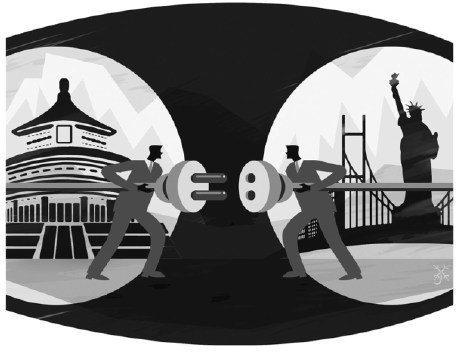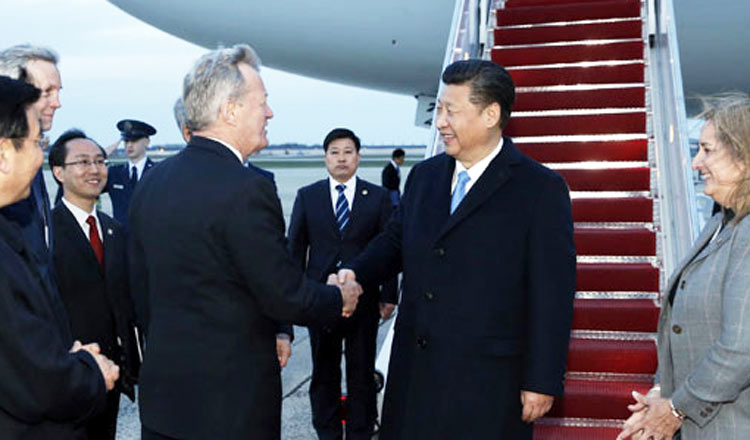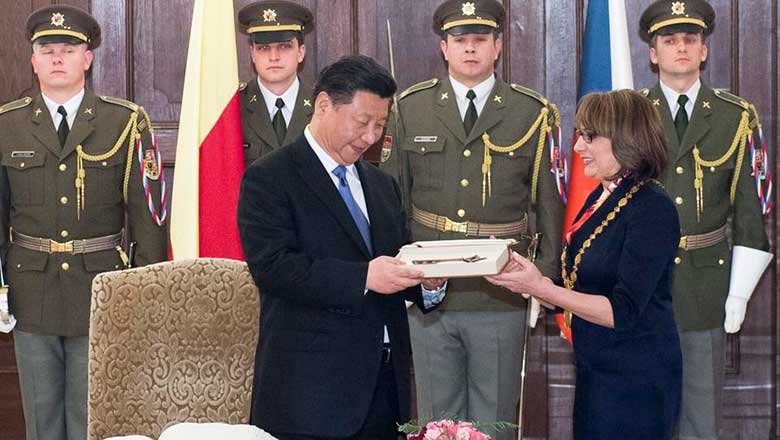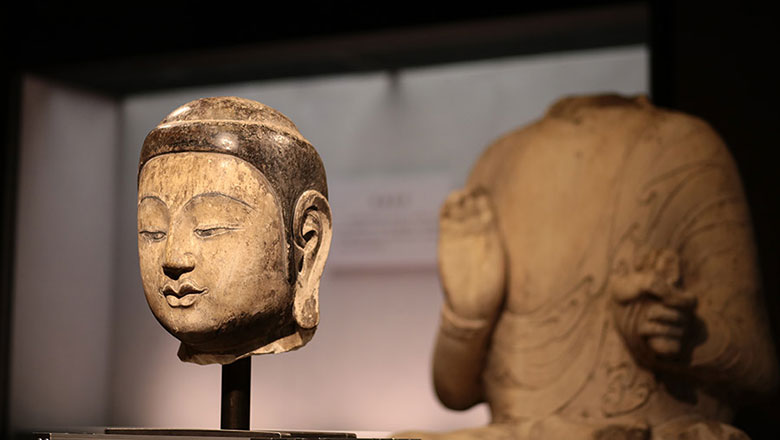It's futile for US to blame China to cover its own misdeeds
Updated: 2016-04-01 08:04
By CHEN WEIHUA(China Daily)
|
||||||||
 |
| MA XUEJING/CHINA DAILY |
It is not unusual for senior US officials to throw jabs at China in their public speeches while traveling abroad.
President Barack Obama and former secretary of state Hillary Clinton did that when they visited Africa years ago. It happened at a time when a rising China quickly became Africa's largest trade partner and investor, especially in infrastructure, an area increasingly ignored by Western nations.
When Assistant Secretary of State Daniel Russel spoke at the Hertie School of Governance in Berlin on March 22, he followed the same pattern-criticizing China without any self-criticism.
He pointed finger at China's human rights, laws and regulations on cyberspace, banking, counterterrorism and NGO management.
It is no secret that as a developing nation, China has a lot of room for improvement. Yet the world's only superpower has much soul searching to do, too, and it does not seem proper for senior US officials to use megaphone diplomacy against China. Chinese officials have refrained from doing things like that while traveling abroad, although they have plenty of ammunition.
For example, the rampant US drone strikes in some Middle East and North Africa nations have not only constituted violations of sovereignty, they have killed many civilians, including women and children.
The same is true for cybersecurity. The students at the Hertie School of Governance, who are from various countries, may well remember how the National Security Agency has operated above the law to conduct surveillance. Over the years, the US government has also forced tech companies to collaborate and conspire in such surveillance activities.
On March 25, Democracy Now, a small but reputable network, continued talking about how the Pentagon funded and used a Colorado-based Christian NGO as a front to spy on the Democratic People's Republic of Korea.
Russel talked at length, criticizing China's actions in the South China Sea. He talked lightly, however, when mentioning the land reclamations, military facilities and airstrips built by other nations before China made any such moves in the past years.
"This was not a good thing," Russel said, without explaining why the US remained dead quiet over the years and decades when other nations took those actions. It's just like when he conveniently forgot to mention publicly the gross human rights violations by some close US allies.
Russel repeated the US stance of not taking sides in the South China Sea sovereignty issues. He sounded like a judge when arguing for the UN Convention on the Law of the Sea, a treaty the US has not even ratified.
He did not say that China made the Article 298 declaration 10 years ago not to accept compulsory arbitration, a decision that also was made by some 30 other signatory nations.
The US is certainly responsible for the tension in the South China Sea when it tries to rally countries in the region to gang up on China in pursuit of its pivot-to-Asia strategy. The US sending aircraft carriers and bombers there is a clear sign of militarizing the region.
Wang Yingfan, China's former permanent representative to the UN, was blunt in his recent speech at American University. He called on the US to exercise restraint, saying, "If you do too much, China has to react."
Russel accused China of coercion and disrespecting international laws, saying "the United States accepts limits".
It is not hard to tell that the US is the country that has used coercion more frequently than any other nation. And if the rampant drone strikes, the frequent military surveillance along the Chinese coast, the regime change in Libya and the NSA's activities as revealed by Snowden are examples of accepting limits, then Russel has to define what not accepting limits is.
The author is deputy editor of China Daily USA. chenweihua@chinadailyusa.com
- Cypriot court remands in custody man suspected of hijacking EgyptAir flight
- Govt eyes luxury tourists amid concerns over safety
- Sleep tight and don't let sharks bite at Paris aquarium
- Aung San Suu Kyi appointed as Myanmar's new foreign minister
- Hollande promises to tighten Euro 2016 security
- US officials applaud China for nuclear cooperation

 Xi tells Obama disputes should avoid misunderstandings
Xi tells Obama disputes should avoid misunderstandings
 Xi calls for bigger progress in China-Denmark ties
Xi calls for bigger progress in China-Denmark ties
 Chinese president arrives in Washington for Nuclear Security Summit
Chinese president arrives in Washington for Nuclear Security Summit
 President Xi presented with 'key to Prague'
President Xi presented with 'key to Prague'
 China move into the final stage of Asia qualifiers after 15 years
China move into the final stage of Asia qualifiers after 15 years
 Grief, anger engulf Taiwan as suspected killer of girl arrested
Grief, anger engulf Taiwan as suspected killer of girl arrested
 Stolen Buddha statue head arrives in Hebei museum
Stolen Buddha statue head arrives in Hebei museum
 Top 10 best-selling beers in the world
Top 10 best-selling beers in the world
Most Viewed
Editor's Picks

|

|

|

|

|

|
Today's Top News
Marriott unlikely to top Anbang offer for Starwood: Observers
Chinese biopharma debuts on Nasdaq
What ends Jeb Bush's White House hopes
Investigation for Nicolas's campaign
Will US-ASEAN meeting be good for region?
Accentuate the positive in Sino-US relations
Dangerous games on peninsula will have no winner
National Art Museum showing 400 puppets in new exhibition
US Weekly

|

|







